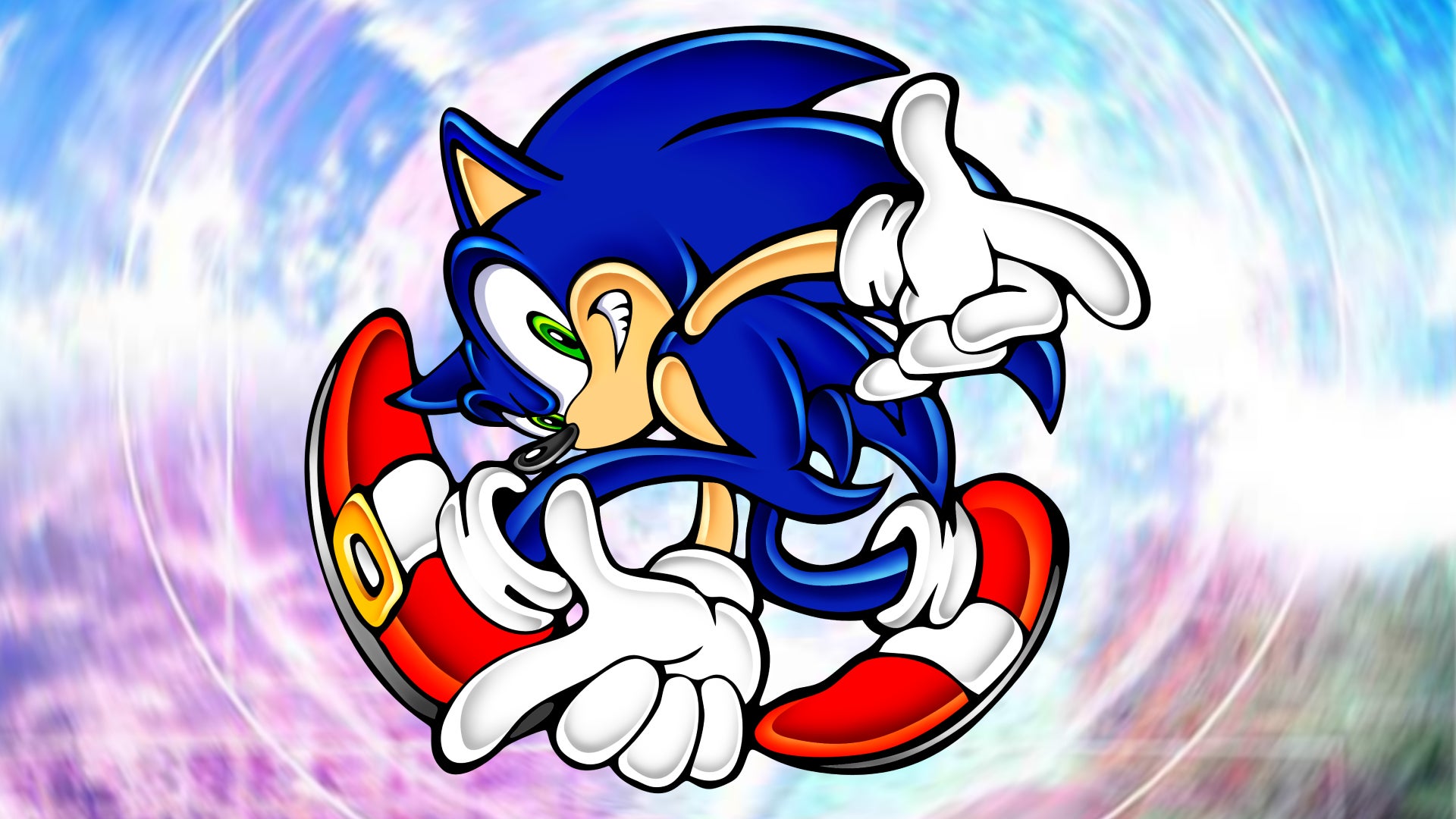Products You May Like
Sonic’s transition to 3D has always been tricky. That 2D to 3D lane change has continued to dog the hedgehog’s releases even into the modern generations (isn’t that right, Sonic Forces?) whereas former rival Mario kept soaring beyond galaxies, getting more comfortable with each release.
For Sonic, these transitional woes were the case even at the beginning; while Super Mario 64 arrived fully formed and revolutionised 3D gaming, the Blue Blur had false starts. The cancellation of Sonic Xtreme on Sega Saturn, and what was basically a 3D tech demo inside the compilation release Sonic Jam weren’t exactly helpful in getting Sonic and pals off the 3D starting block at speed. It wasn’t until 1998’s Sonic Adventure on the Dreamcast that Sega’s beloved mascot would finally speed into 3D proper, ushering Sonic – and fans – into a new exciting dimension.
Sonic Adventure was by no means a perfect game; the original Japanese release was rushed out in order to hit shops just two days before Christmas, after all. But when I’ve come back to replay the game in recent years, even on its original hardware, it still holds up as the gold standard for all 3D Sonic games – and one which future entries have just never managed to match.
Let’s start with the game’s CG intro, which absolutely understood the assignment in bringing the hype. It introduces us to a new menacing high-stakes threat in the form of Perfect Chaos. It teases us with quick shots of each character, including newcomers and redesigns (Dr. Eggman has never looked more bad-ass when the camera crash-zooms on him standing aboard the Egg Carrier with the wind blowing against his moustache). And it does it all while the chorus for Crush 40’s ‘Open Your Heart’ officially established Sonic as a hedgehog who likes his rock music.
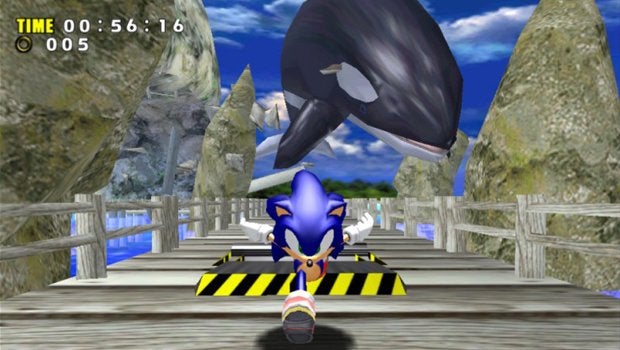
This was Sonic Team still in its heyday. Sonic’s co-creators Yuji Naka and Naoto Ohshima were firing on all cylinders, delivering a headline game on new 128-bit hardware that was simply not possible before, taking the hedgehog’s signature speed to new dizzy heights with unforgettable setpieces; being pursued by an orca on Emerald Coast, snowboarding down a mountain to escape an avalanche, running down the side of a skyscraper on Speed Highway, and – heck – even a pinball mini-game that throws in a cameo of Nights into Dreams.
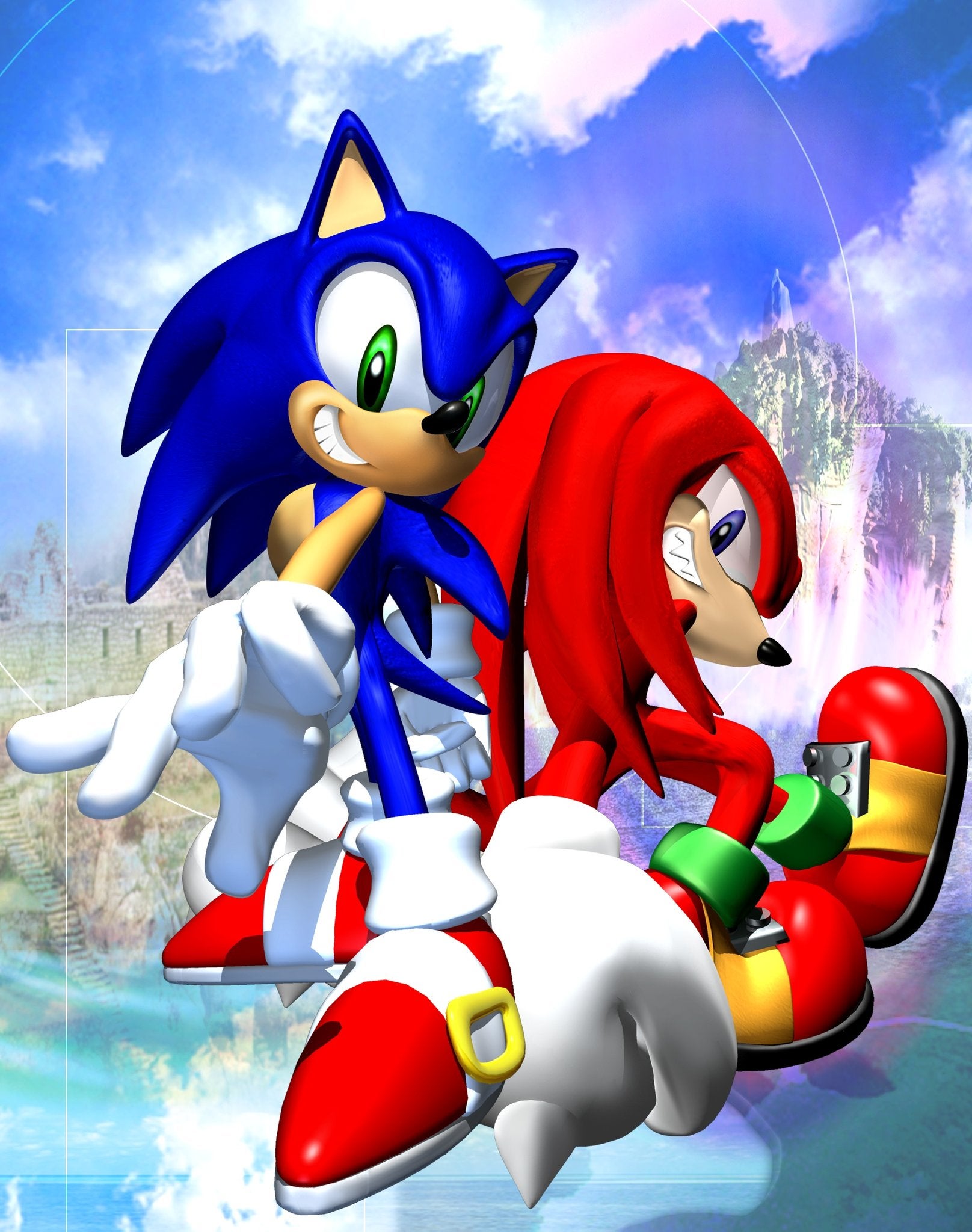
And these stages didn’t waste a moment with moving you from one inspired spectacle to the next, so tightly designed that most could be cleared in two or three minutes. That’s been a glaring issue with later Sonic titles, which were guilty of repeating the same sequences ad nauseum, sometimes within the same level, which made it more frustrating when you lost all your lives and had to replay the level from scratch.
That’s not to say racing through these levels came without issues, as the developers have always had to wrangle a camera that could keep up with Sonic without either leaving him stuck on scenery or, worse, falling through the level. The new homing spin attack also had its quirks, too; you might not necessarily have locked onto an enemy in the way you wanted, or you could end up just spinning around them for an indefinite period of time.
But when it worked, it was exactly the flow and rush you wanted from a 3D Sonic. Despite being on the linear side, additional challenges (like completing stages with a certain number of rings, or within a set time) offered replayability for players who wanted to get all the game’s 130 emblems. After a few false starts, it seemed like Team Sonic finally found its feet with Sonic Adventure, then.
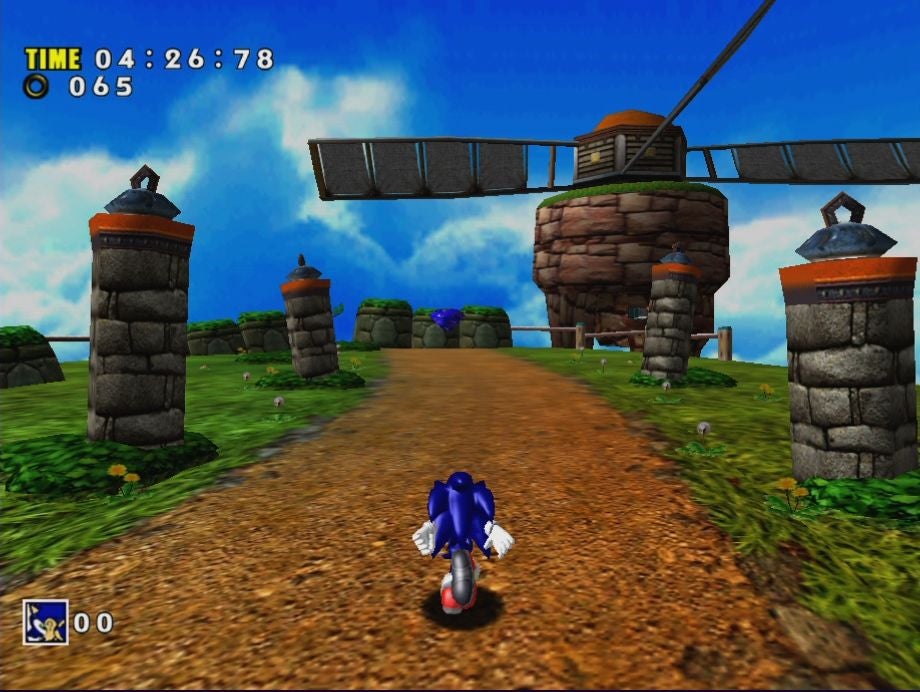
Sonic Adventure 2 arguably had a more interesting grading system, and for a while that convinced me it was the superior game. But, in retrospect, the action focus meant it was also missing that titular ‘adventure’ element. Sonic Adventure’s hub sections were great for breaking up the pace and spoon-feeding you the game’s story, and while it’s hardly up there for memorable narratives, missions were cleverly intersected so that the new characters you met would become playable – and then you’d experience the story from their perspective. There was even attention paid to the NPCs (not often given the time of day in Sonic titles), the most memorable of which involved a subplot where the train staff at Station Square go on strike for better working conditions. How’s that for progressive politics in games?
The character stories themselves were well balanced too, in that Sonic was importantly the headliner, getting the lion’s share of levels (it’s wild to think he only featured in six of the 30 levels in SA2), while the other characters added variety, often covering the same levels but with different approaches and mechanics. Think about Knuckles’ exploration-based hunt for pieces of the Master Emerald, or Amy’s slower-paced platforming while being pursued by a large robot. The ex-damsel in distress may have gotten a raw deal with just three levels, but her arc’s always been a personal highlight, recasting her as a heroine for a cute little bird, while also changing the heart of robot underling E-102 Gamma. Plus, her theme song is just so irresistibly sweet.
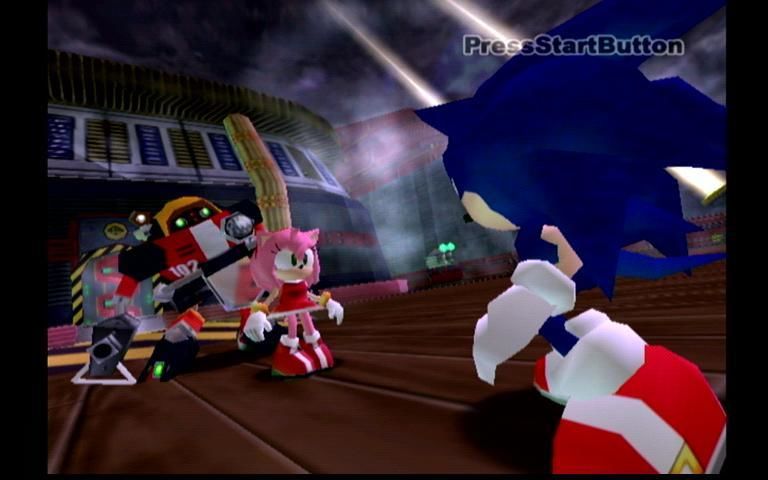
Of course I can’t talk about Sonic Adventure without mentioning its total banger of a soundtrack, whether it’s each character’s distinct theme – from Knuckles’ hip-hop to Gamma’s melancholic jazz piano fused with electronica – or each of the levels, which followed Sonic 3’s pattern where each act had a different variation. But Jun Senoue’s rock sound ultimately took centre stage, and while most fans will say ‘Live & Learn’ from SA2 is their favourite song from Crush 40, for me it’s always been ‘Open Your Heart’ – perhaps just because it was the first that made such an impression.
The tragedy is that Sonic Adventure isn’t viewed as a classic compared to, say, Super Mario 64. According to Metacritic, it’s rated almost as badly as Sonic ‘06, to which I have to wonder whether nostalgia has completely clouded my judgement? But having recently played it again, no; I have to declare it’s the children who are wrong.
Those Metascores you find aren’t for the Dreamcast release, but for ports based on Sonic Adventure DX (first released on GameCube). This supposed ‘Director’s Cut’ did improve some elements – such as doubling the frame rate to 60FPS, updating the character models to those used in SA2 without mittens for hands, and letting you skip cutscenes – but it also inadvertently added a whole bunch of control issues and glitches that didn’t exist in the original Dreamcast version. For a more detailed breakdown with all that went wrong in the DX ports, this YouTube video from Cybershell is highly recommended.
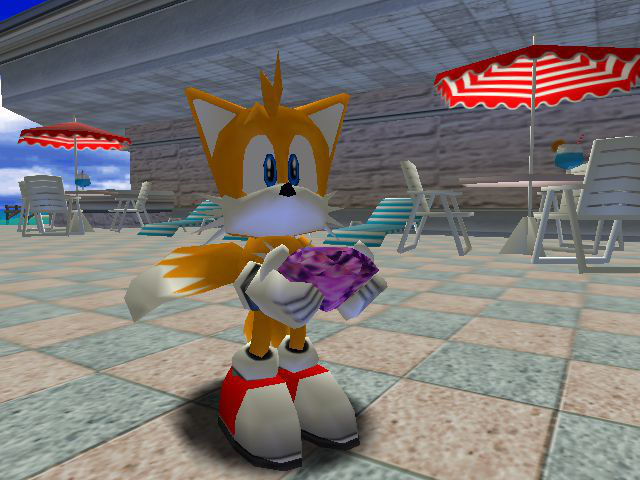
Compared to the furore over Nintendo’s initial bungled N64 emulation for Ocarina of Time on its Nintendo Switch Online service, it’s almost criminal it’s not more widely known how Sega botched Sonic’s best 3D game for posterity. To get the true Sonic Adventure experience, you need to play the Dreamcast version either on original hardware or via emulation, although a bunch of mods on the PC version does reportedly restore the game to as close to the original as possible.
If you do manage to play Sonic Adventure in its original form, then you’ll find that much of its charm and invention still holds up. Especially when compared to the dragging tedium and bloat that came in later entries in the series, where the hedgehog suffered an identity crisis, suffered questionable design decisions, and just seemed to coast on his past successes.
Critics have long written off Sonic in 3D. Most of the excitement around the hedgehog these days is tied to his 2D outings; look at the excellent fan-developed Sonic Mania, and Sonic Origins (though this could be the start of Sonic’s 2D decline… again). Although it Sega is aiming for high review scores for Sonic Frontiers, it remains to see whether a 3D Sonic will cut it in 2022. From what we’ve seen so far, it appears Sega is backing the wrong proverbial horse. I’d sure like to have sat in on past investor calls where the execs said they were aiming for ‘a satisfactory 6/10’, though.
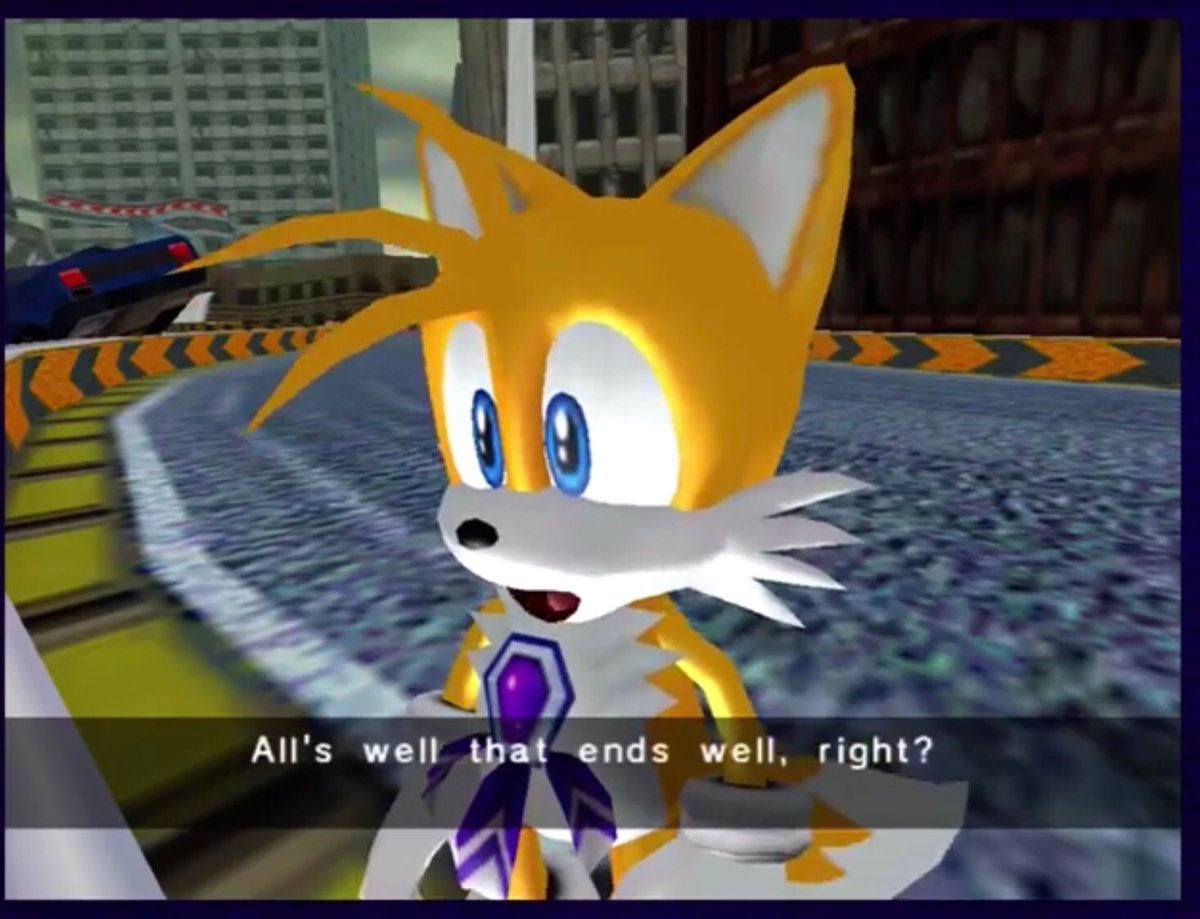
Who knows, the much-anticipated ‘open zone’ gameplay might just be a game-changer, and with Sonic Team’s Takashi Iizuka stating his goal is for this new instalment to lay the foundations for future Sonic titles, I’m going to open my heart and hope that the team has lived and learned from the best. The developer, after all, wants the new game to be as influential as Sonic Adventure. All I can say to that is: good luck.
